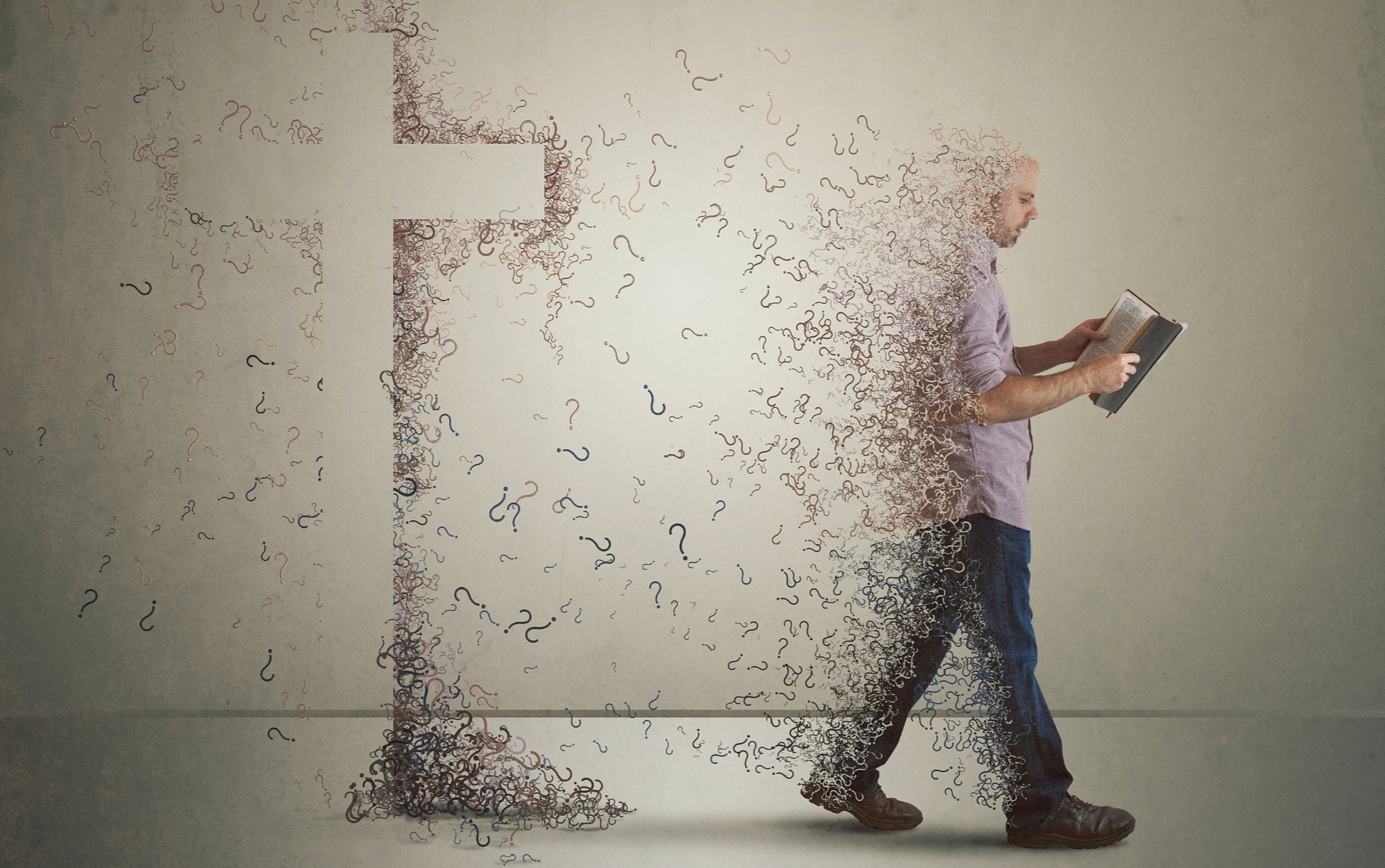“Where is God?” is the question that arises in the face of inexplicable tragedy. When even a high-ranking clergyman is plagued by this question, the natural response is to conclude that something does not add up.
People of faith have no doubts. This is a common axiom in religious circles. But does it hold true in reality? The idea of spiritual progress without obstacles is appealing, but the situations we encounter often raise questions and shake our faith in the divine.
Denying the existence of God is most often associated with unbelief. But could someone with firm religious convictions find themselves caught up in the same cycle of questioning that seems to stem from unbelief?
At first glance, unbelief appears to be incompatible with religious fervour. Those who call themselves “men of God”, in various clerical positions, are not permitted to experience moments of spiritual confusion. Such experiences could be considered sacrilege or a betrayal of the mission they have received and the vocation they have deliberately pursued.
Yet even clergy can have personal experiences marked by turmoil and unanswered questions.
Doubts at the highest level
Taking this into account, the confession of one of the highest-ranking Anglican clergymen should come as no surprise. None other than the former Archbishop of Canterbury admitted that he had moments of doubt about the existence of God. During a walk, he wondered how it was possible that the Almighty did not intervene when injustice occurred.
He made this confession during an interview with a BBC reporter in front of several hundred people attending a service in Bristol Cathedral. Justin Welby admitted, “There are moments, sure, where you think ‘Is there a God? Where is God?'” wrote The Guardian.
Welby was aware that his statement could have multiple implications and raised the stakes by saying that “it is probably not what the Archbishop of Canterbury should say”.
This strange statement from the Anglican leader prompted the reporter to ask him whether he ever doubted his faith. Although he admitted that the question made him uncomfortable, the cleric offered a response that presented him as vulnerable. “Yes, I do [doubt]. It’s a very good question. That means I’ve got to think about what I’m going to say. Yes, I do.” To justify his attitude, he cited the example of Psalm 88, which he said was “full of doubt”.
Doubt for believers?
Reverend James Martin, a Jesuit priest and editor of an American magazine, suggested that the archbishop’s doubts are a natural part of a relationship with God. In his view, even the disciples doubted Jesus’s power, despite witnessing miracles.
We often perceive doubt as the opposite of faith, but could it have benefits that we struggle to recognise in times of crisis? In his book Faith and Doubt, John Ortberg, a best-selling author and pastor, argues that the very nature of faith demands the presence of uncertainty. Doubt can motivate us to study and learn, he suggests.
In this context, it is understandable why so many people in the pages of the Holy Scriptures do not silence their doubts. For example, the prophet Habakkuk does not hide his accusatory questions to God at all. “How long, Lord, must I call for help, but you do not listen? Or cry out to you, ‘Violence!’ but you do not save?” These are the cries of a man who seems to be in despair, rather than at the height of faith, as we would expect from a prophet.
Faith without dilemmas is not faith
Not only can doubt stimulate progress, but its absence can generate a false sense of security. This creates a feeling of spiritual fulfilment without substance. This is what Andrei Pleșu was talking, as a layman of course, when he stated: “The believer who is comfortably ‘settled’ in their faith, the believer who no longer has questions, doubts, spiritual concerns, bewilderment, and uncertainties, is a mere church functionary whose self-sufficiency and spiritual ‘sedentarism’ could exasperate God Himself.”
This deduction may seem bizarre, but it may be the source of a re-evaluation of what authentic spirituality entails, beyond the reflections it generates. A spirituality which, in order to develop, must pass through the realm of unanswered questions and existential crises.
So, what is the difference between those who display religious values and those who have no concern for them? Although they seem to be at opposite ends of the spectrum, they have one thing in common: doubt.
Uncertainties that amplify… certainty
The film God on Trial provides a convincing answer. It is about a group of Auschwitz prisoners who decide to put God on trial in absentia. It was 1943. The prisoners in the barracks desperately want not only to survive, but also to escape the existential crisis that Nazism has thrown them into. The prisoners attempt to answer the eternal question: Why does God allow so much suffering?
The deliberations of the jury seem to condemn God. He is found guilty. However, the trial is interrupted by Nazi soldiers entering the barracks to take the next group to the death chambers. A faint voice asks the final question, “What do we do now?” The reply comes: “Now we pray.”
Behind this answer, we sense another kind of certainty. Although he acknowledged that he has many unanswered questions, Welby is convinced that God is real. “It is not about feelings, it is about the fact that God is faithful and the extraordinary thing about being a Christian is that God is faithful when we are not.,” he says.
It is, in fact, this kind of certainty that can keep hope alive in darkness. If everything were certain, why would we need faith? If we were not faced with dilemmas, how could we progress?



















